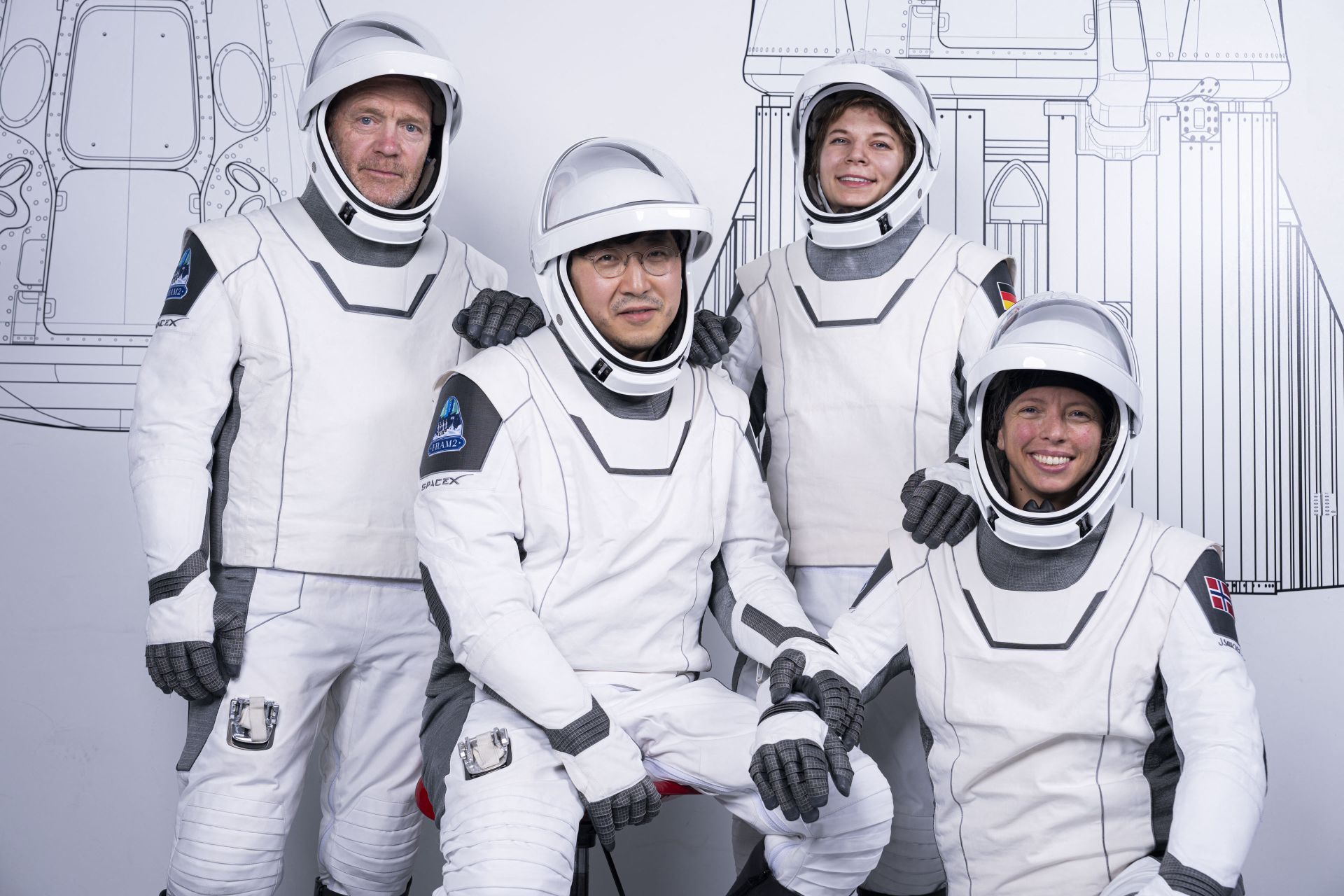
SpaceX launched the first human spaceflight directly over Earth's polar regions on Monday -- a days-long, privately funded orbital mission involving four astronauts.
Named "Fram2" after the famed Norwegian ship built in the 19th century for Arctic and Antarctic expeditions, the mission will feature a range of experiments including taking the first X-ray in space and growing mushrooms in microgravity.
It's hoped that the research will support future long-duration space travel to Mars.
The crew launched aboard a SpaceX Crew Dragon capsule on a Falcon 9 rocket at 9:46 pm Monday (0146 GMT Tuesday) from NASA's Kennedy Space Center in Florida.
Cheers rang out in the control room as the powerful rocket roared upward, lighting up the night sky with a long, orange plume of flame as the craft began its journey toward Earth's North and South Poles.
"With the same pioneering spirit as early polar explorers, we aim to bring back new data and knowledge to advance the long-term goals of space exploration," mission commander Chun Wang said before the launch.
Wang, a Chinese-born Maltese adventurer and co-founder of crypto companies f2pool and skatefish, selected the rest of the crew: vehicle commander Jannicke Mikkelsen, a Norwegian film director; mission pilot Rabea Rogge, a robotics researcher from Germany; and mission specialist and medical officer Eric Philips, an Australian polar explorer.
The team trained for eight months in preparation for the approximately four-day trip, including a wilderness expedition in Alaska to simulate living in close quarters under harsh conditions.
Upon returning to Earth, the crew will attempt to exit the spacecraft without additional medical support -- part of a study to help researchers understand how well astronauts can perform basic tasks after spaceflight.
Except for the Apollo lunar missions, Earth's polar regions have remained out of view for astronauts, including those aboard the International Space Station (ISS). Even on Apollo, they did not fly directly over the Earth's poles.
SpaceX has carried out five private astronaut missions to date -- three in collaboration with Axiom Space to the ISS, and two free-flying in Earth orbit.
The first of these was Inspiration4 in 2021, followed by Polaris Dawn, which featured the first spacewalk conducted by private astronauts.
Both free-flying missions were chartered by e-payments billionaire Jared Isaacman, who has also been nominated by President Donald Trump to serve as the next NASA administrator.
Isaacman is also a close associate of SpaceX CEO Elon Musk.
With AFP

Comments